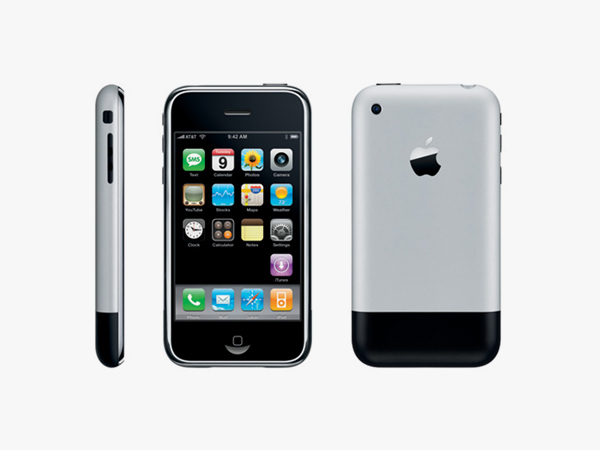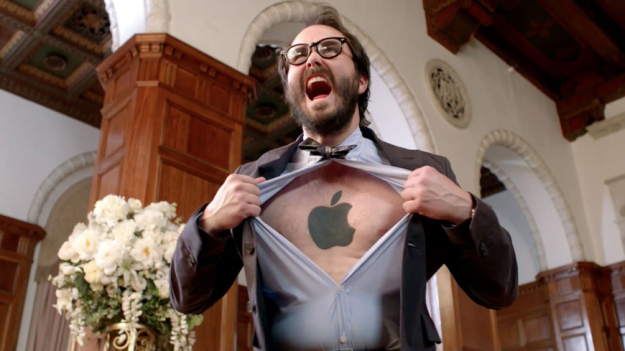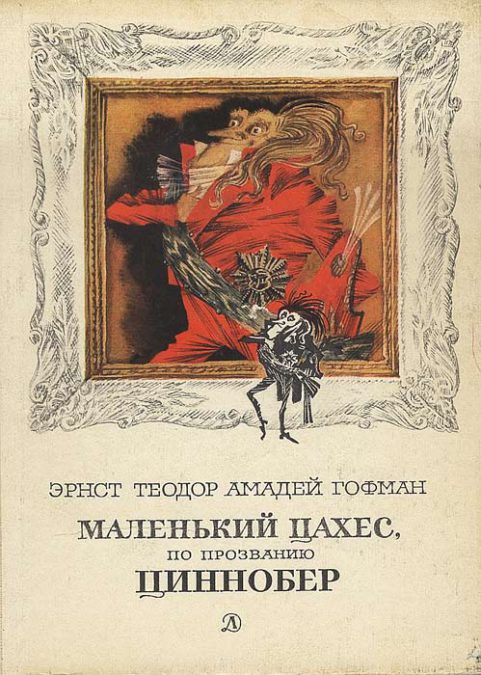Hello!
My acquaintance with smart phones began quite a long time ago, with the acquisition of a largely unique Ericsson R380. From that moment on, I got sick with smartphones. After some time Ericsson changed Motorola MPX200, then there were several more devices from Nokia, including the legendary 6630, and a whole scattering of Nokia N-series based on Symbian.
It was a wonderful time. Time of pioneers and honest technology.


The next platform, which will later become the main one for many years, turned out to be Android. The acquaintance with the green robot began with HTC Tattoo and continued with the Samsung Galaxy i7500 smartphone.
Around this time, I began to glance at a representative of an incomprehensible and therefore alluring platform from Apple – iPhone.
The emergence of this smartphone was accompanied by such familiar and already worn out today epithets like 'innovative', 'unique', 'first', 'best', etc.
Apple did not hesitate to call her products the best, and at the same time attribute to herself the invention of technologies and innovations.

And if at first I didn’t pay attention to it, then gradually such marketing husk began to cause bewilderment and even dislike.
Regardless, as a true geek I had to try out the 'best mobile operating system'. The acquaintance took place. It was iPhone 3G. The impressions were controversial.
The negative user experience eroded the feeling of belonging to the elite club of the owners of a status item that not everyone could afford.
I ended up returning to the green robot.
Considering the pumping and pumping of media resources that the fruit company suited, presenting the next generation iPhone, and then iPad, it was impossible to ignore this information and not pay attention.
And every time Steve Jobs talked about what kind of 'bicycle' they had invented this time, my dislike for this approach grew in proportion to the growth of the army of fans who firmly believed in primacy and uniqueness Apple and refused to critically look at happening.

Image via linkedin.com
At the same time, somewhere on the brink of consciousness, the thought pulsated that once upon a time I had already encountered something like this. But where and when?
And then I remembered that in my distant childhood I came across a book of fairy tales, in which either by mistake or deliberately was included the grotesque and not at all children's story of Ernst Theodor Amadeus Hoffmann 'Little Zaches, nicknamed Zinnober'.

Wikipedia:
The protagonist of the story is an ugly dwarf, thanks to the good fairy endowed with the ability to fool people. Any praiseworthy deed performed in his presence is attributed to him, Tsakhes, who changed his former name to a new one – Zinnober. And vice versa, if he does something disgusting or shameful (and he does nothing else) – in the eyes of those present, someone else seems to have done the abomination, most often the one who suffered the most from Zinnober's antics.
However, he himself does not realize this and, due to his feeble mind, takes what is happening for granted.
At the same time, his true essence is seen only by those who themselves have talent and whose talent is appropriated by Tsakhes.
It is impossible not to draw parallels with Apple (except, perhaps, ugliness).
In Android, the shutter for quick access to switches for various functions has existed since time immemorial. And no one boasted about it as an innovation or a unique feature that brought the user experience to a new, previously unattainable level. But years later, a panel with switches appears in iOS, and immediately among fans of the Cupertin company, a discussion begins about what convenient function 'they came up with in Apple'.
Now let's turn to the text of the story:
Balthazar took out the carefully whitewashed manuscript and began to read. His own poems, with all their might, with all the vividness of a genuine poetic feeling, inspired him more and more. Reading it became more and more imbued with passion, revealing all the ardor of a loving heart. He trembled with delight when the quiet sighs, barely audible 'ah' of women and the exclamation of men: 'Magnificent, excellent, divine!' – convinced him that the verses captivated everyone.
Finally he finished. Then everyone cried out:
– What a creation! How many thoughts! How much fantasy! What poetry! What a good sound! Thank you, thank you, dear Mr. Zinnober, divine delight!
– How? What? – Balthazar cried, but no one paid attention to him, – everyone rushed to Zinnober, who, sitting on the sofa, was very important, like a turkey, and hissed disgustingly:
– I humbly thank, humbly thank, do not exact. This is a trifle, I sketched it hastily last night.
Doesn't it look like anything?
But the rest of the producers in this case are in the role of those very violinists, poets and scientists, whose talents are used by such Zinnobers of the world of technology.
And there are a lot of similar examples. And the fans don't care.
In this situation, I am more surprised not by the fact of verbal balancing act on the part Apple, but by the blind faith of fans who are ready to foaming at the mouth to prove the correctness of the theses expressed at the presentation of the next Apple novelty.
I have always struggled to understand what drives these people repeating, like mantras, advertising slogans Apple.

Why can't these people be able to face objective reality? Why do they continue to devoutly believe in their religion and deny the facts?
It seems that Tsakhes of the digital world managed to very thoroughly confuse people. And another confirmation of this is the display in iPhone X.
Let me quote the words of Eldar Murtazin from the review iPhone X:
For many years in a row, Apple fans have argued that AMOLED screens from Samsung are something extremely bad, they have the wrong colors (they usually did not know what color rendering was) , too high brightness (this was a shame when the advantage was written down to the minuses), and they also have Pentile. Since mid-2016, I knew that Apple are planning to buy AMOLED – Samsung screens, and I was wondering how the tone of the statements would change. It changed to the diametrically opposite: now the screen iPhone X is the standard and the future, which suddenly happened.
Where is the logic in the reasoning of those who yesterday considered Samsung displays to be bad and inferior to displays in devices Apple? What should be in the head to be able to change opinions so quickly, denying the obvious?

And again, let's turn to Hoffmann's creation:
– I play, – continued Sbiocca, – Viotti's most difficult concert. This is my pride, my joy. You heard me play him, and it has never happened that he did not delight you. And yesterday, I can say, I was in an unusually happy mood – anima, I mean, with a cheerful heart – spirito alato, I mean. No violinist in the whole world, whether it was Viotti himself, would have played better. When I finished, there was a furious applause – furore, I mean, what I expected. Taking the violin under my arm, I stepped forward to politely thank the audience. But what do I see, what do I hear? Every single one, not paying the slightest attention to me, crowded in one corner of the hall and shouted: 'Bravo, bravissimo, divine Zinnober! What game! What a position, what an art! ' I throw myself into the crowd, push myself forward. There is a disgusting freak three feet tall and nasal in a disgusting voice: 'I humbly thank, humbly thank, played as I could, however, now I am the strongest violinist in all of Europe, and in other parts of the world known to us.'
– 'Thousand devils! I exclaimed. – Who finally played: me or that worm! ' And since the kid was still mumbling: 'I humbly thank, humbly thank,' I rushed to him to put all the fingering on him. But then everyone rushes at me and talks about all sorts of nonsense about envy, jealousy and ill will.
It's sad and funny at the same time. How can you deny the obvious?
Another interesting point adds similarities. Very often Apple, in order to defend his position, he turns into a patent troll, filling up lawsuits with anyone who can open the eyes of the followers of the Apple religion and shake their faith.
There are appropriate lines in the story:
– Then he wanted to turn abruptly, but the cane on which he was leaning slipped out of his hands, and the baby rolled at Balthazar's feet. Balthazar began to fumble below with his hand to help the baby rise, but inadvertently touched his head. Then the baby let out a shrill cry that echoed throughout the hall, so that the guests jumped up in fright.
What caused such a violent reaction of baby Tsakhes to touching his head? The fact that all the power of the haze brought to people is contained in the three golden hairs on his head presented by the fairy.
I apologize for the spoiler from those who have not read the story, but it will be possible to defeat Zinnober's magic only by pulling out these very hairs from his head.
With each new generation of devices Apple, more and more users are starting to look towards smartphones from other manufacturers. More and more adherents Apple find the strength to look into the eyes of objective reality and begin to perceive gadgets without blind fanaticism. It is difficult to say what this is connected with. Maybe with the fact that Jobs was that very fairy, and without him, magic weakens?
It is frustrating that these 'renegades' are being replaced by a new recruit, willing to be fooled.
In this regard, I would like to know if there is someone who can pull out these hairs from Apple, destroying the haze, or is it too late and all fans of the Cupertin company will have to pull the hairs?
